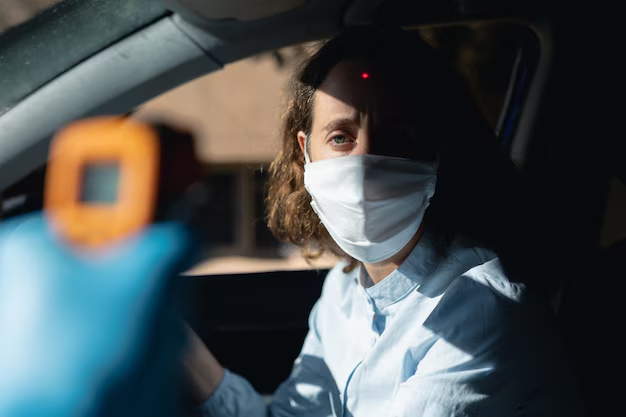Your Guide to How Long After Cataract Surgery Can I Drive
What You Get:
Free Guide
Free, helpful information about Cataract FAQ and related How Long After Cataract Surgery Can I Drive topics.
Helpful Information
Get clear and easy-to-understand details about How Long After Cataract Surgery Can I Drive topics and resources.
Personalized Offers
Answer a few optional questions to receive offers or information related to Cataract FAQ. The survey is optional and not required to access your free guide.
How Soon Can You Return to Driving After Cataract Surgery?
Cataract surgery can be a transformative experience, offering clearer vision and a renewed sense of freedom. However, one common question that arises post-surgery is, "When can I drive again?" This comprehensive guide will explore everything you need to know about driving after cataract surgery, covering essential considerations and related topics to help you navigate this journey effectively.
Understanding Cataract Surgery Recovery
Before diving into the specifics of driving, it's important to understand the recovery process after cataract surgery. Generally, cataract surgery is a routine procedure with a straightforward recovery, but individual experiences can vary based on several factors.
The Typical Recovery Timeline
- Immediate Post-Surgery: Many patients experience clear vision within hours, but full stabilization can take days or weeks.
- First Few Days: It's common to have blurred vision as the eye adjusts. This is also when light sensitivity may occur.
- Follow-Up Visits: Your surgeon will likely schedule several appointments to monitor progress and ensure healing is on track.
What Affects Recovery?
- Age and Health: Older patients or those with underlying health conditions may experience different recovery times.
- Complications: Although rare, issues like infection or inflammation can extend recovery.
- Lifestyle and Compliance: Following postoperative instructions diligently can facilitate smoother recovery.
Driving Considerations After Cataract Surgery
The decision to resume driving is not one-size-fits-all. Here are several factors that play a role in determining when it's safe to get back behind the wheel.
Professional Guidance
Always consult with your ophthalmologist before resuming driving. They can provide personalized advice based on your unique recovery and eye health.
Vision Requirements
- Legal Vision Standards: Each region may have specific criteria regarding vision clarity for drivers. Make sure your vision meets the legal driving requirements.
- Glasses or Contacts: If your vision hasn't fully stabilized, corrective lenses might still be necessary to meet these legal standards.
Safety Concerns
- Light Sensitivity: Bright sunlight or headlights can be bothersome. Sunglasses or antiglare coatings may help improve comfort when driving.
- Depth Perception and Reaction Time: Immediately after surgery, your brain needs time to adjust to the new way light enters your eye, which can affect depth perception.
Testing Your Readiness
Before returning to regular driving, consider trying short drives during the daytime or parking lots to evaluate your comfort and confidence.
Related Topics and Considerations
Beyond the basic consideration of safety and legality, some other factors can influence your readiness to drive.
Adjusting to New Vision
Some individuals opt to have one eye operated on first, allowing time for adjustment before the second eye surgery. This staging can impact driving decisions, especially on depth perception.
Eye Surgery in Both Eyes
If both eyes undergo surgery, recovery times can vary. One eye might stabilize faster than the other, affecting driving readiness.
Common Symptoms Post-Surgery
- Hazy or Blurry Vision: Common in the first few days.
- Redness or Wateriness: Normal inflammation that usually resolves quickly.
- Sensations of Irritation: Like a gritty feeling as the eye heals.
Post-Surgery Tips
- Regular Eye Drops: Crucial for preventing infection and managing inflammation.
- Protective Eyewear: Especially immediately post-surgery, to guard against dust and light.
- Avoid Rubbing Your Eyes: This can disrupt the healing process.
Key Takeaways
To wrap up, here's a concise bullet-point summary to guide you:
- 🗓️ Timeframe: Wait until your doctor gives the green light.
- 👓 Vision Checks: Ensure your vision meets legal standards for driving.
- 🌄 Test Drivings: Start with short, safe distances in daylight.
- 🕶️ Sunglasses: Reduce glare and light sensitivity.
Final Thoughts
Cataract surgery marks the start of a new chapter of improved vision and independence. By understanding your recovery journey, adjusting expectations, and closely following your doctor's guidance, you will soon be navigating the roads again safely and confidently. Remember, patience and care with your recovery are key to ensuring your best outcome.
What You Get:
Free Cataract FAQ Guide
Free, helpful information about How Long After Cataract Surgery Can I Drive and related resources.

Helpful Information
Get clear, easy-to-understand details about How Long After Cataract Surgery Can I Drive topics.

Optional Personalized Offers
Answer a few optional questions to see offers or information related to Cataract FAQ. Participation is not required to get your free guide.


